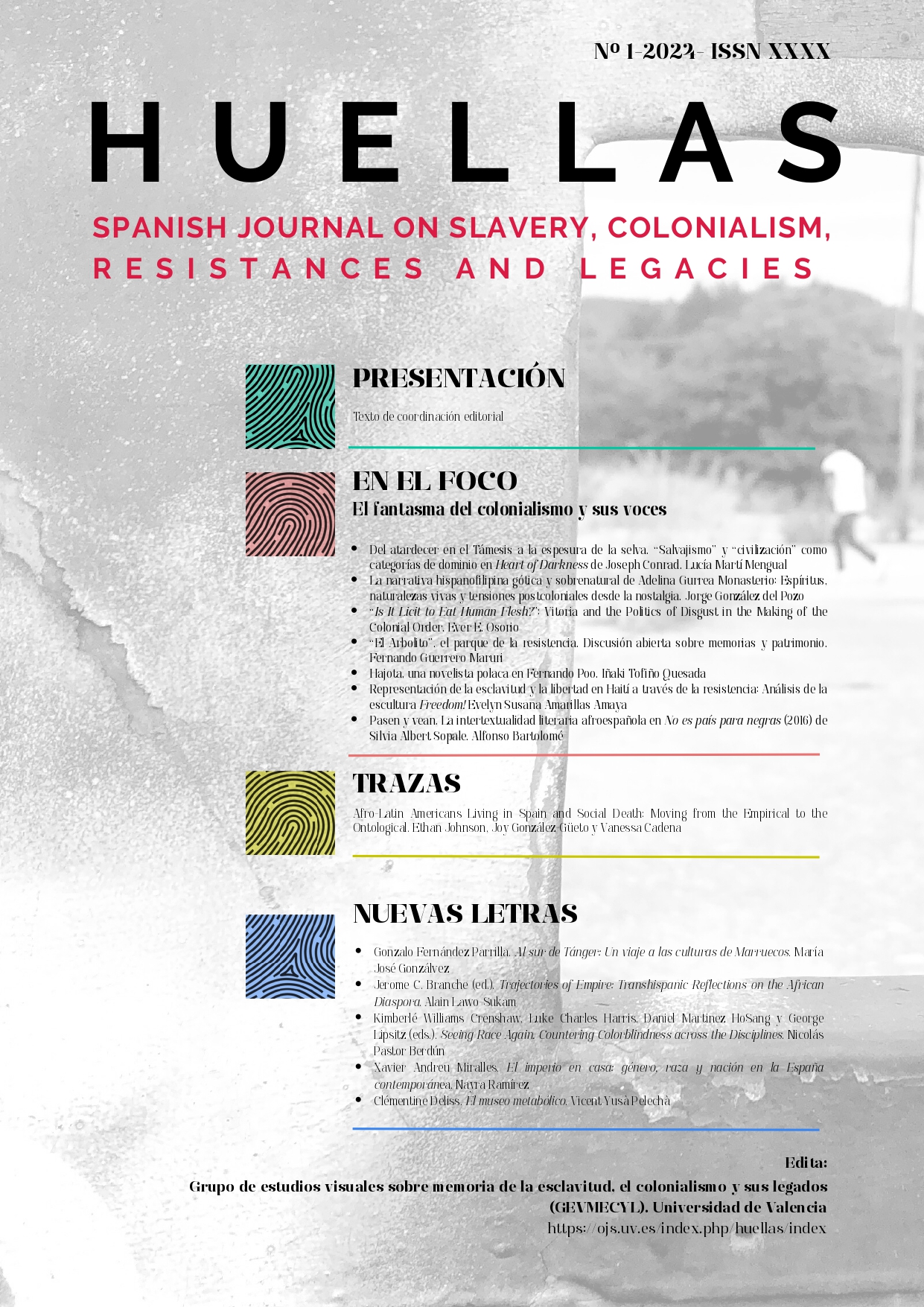Ancient emotions and the making of the colonial order: Aristotle, Aquinas and Vitoria on Anthropophagy
 Abstract
Abstract
In this paper I explore how Francisco de Vitoria interpreted the reported practice of anthropophagy by American Indians, through the mobilization of the emotional politics of disgust. I argue that by appealing to Aristotle’s arguments in Nichomachean Ethics, instead of his immediate interlocutor Aquinas, Vitoria’s underlying objective in his relection on Self-Restraint was to set the moral grounds for a legal and political order capable of justifying European (Spaniard) colonial settling. For instance, while Aquinas focuses on sin as the principle against to guide human action within a Christian telos, Vitoria places all his attention on licitness and legality as a principle to guide human behavior in the contingency of global encounter. By examining Vitoria’s analyses of anthropophagy as a vicious, unrestrained and barbaric practice, I show that the making of colonial reason was culturally regulated. Disgust as a political mechanism for producing hierarchy is an ancient emotion which was revisited by Vitoria for the crafting of a legal global order in a historical moment of European conquest. With this approach I show how the lawfulness and rightness of the colonial project depended not on the abstract formulation and application of international law, but on the emotional structure of the moral system behind it.
 Downloads
Downloads
 References
References
Aquinas, Thomas. Summa Theologicae. Edited by Bezinger. 1947. https://dhspriory.org/thomas/summa/FS/FS001.html.
Aristotle. Aristotle's Politics. Translated by Carnes Lord. Chicago: Chicago University Press, 2013.
Koselleck, Reinhart. The Practice of Conceptual History: Timing History, Spacing Concepts. Stanford, Calif: Stanford University Press, 2011.
Miller, William Ian. The Anatomy of Disgust. Cambridge (Massachusetts): Harvard University Press, 1998.
Aristotle. Nichomachean Ethics. Translated by Robert C. Bartlett and Susan D. Collins. Chicago: University of Chicago Press, 2011.
Pagden, Anthony. The Fall of Natural Man: The American Indian and the Origins of Comparative Ethnology. Cambridge: Cambridge University Press, 1999.
Stoler, Ann Laura. Duress: Colonial Durabilities in Our Times. Place of Publication Not Identified: Duke University Press, 2016.
Vitoria, Francisco De. Relectiones Theologicae. Madrid: Manuel Martin Y á Su Costa, 1765.
Vitoria, Francisco De. Political Writings. Edited by Anthony Pagden. Translated by Jeremy Lawrance. Cambridge: Cambridge University Press, 2010.
Whitehead, Neil L. "Carib Cannibalism. The Historical Evidence." Journal De La Société Des Américanistes 70, no. 1 (1984): 69-87. doi:10.3406/jsa.1984.2239.
Published
How to Cite
-
Abstract46
-
PDF10
Issue
Section
License
Los textos publicados en esta revista están –si no se indica lo contrario– bajo una licencia Reconocimiento-NoComercial 4.0 de Creative Commons. Puede copiarlos, distribuirlos y comunicarlos públicamente siempre que cite a su autor y el nombre de esta publicación, Huellas. Spanish Journal on Slavery, Colonialism, Resistances and Legacies y no los utilice para fines comerciales. La licencia completa se puede consultar en Creative Commons.
Aquellos/as autores/as que tengan publicaciones con esta revista, aceptan los términos siguientes:
- Los/as autores/as conservarán sus derechos de autor y garantizarán a la revista el derecho de primera publicación de su obra, el cuál estará simultáneamente sujeto a la Licencia de reconocimiento no comercial de Creatuve Commons que permite a terceros compartir la obra siempre que se indique su autor y su primera publicación esta revista.
- Los/as autores/as podrán adoptar otros acuerdos de licencia no exclusiva de distribución de la versión de la obra publicada (p. ej.: depositarla en un archivo telemático institucional o publicarla en un volumen monográfico), siempre que se indique la publicación inicial en esta revista.
- Se permite y recomienda a los/as autores/as difundir su obra a través de Internet (p. ej.: en archivos telemáticos institucionales o en su página web) antes y durante el proceso de envío, lo cual puede producir intercambios interesantes y aumentar las citas de la obra publicada.



